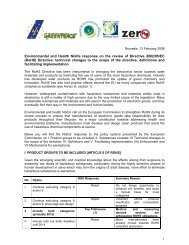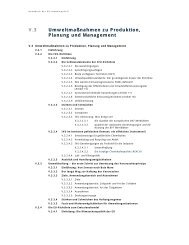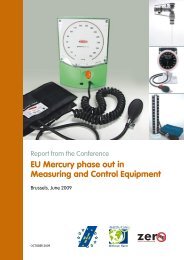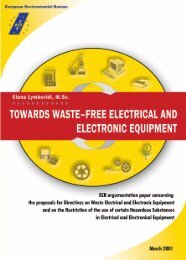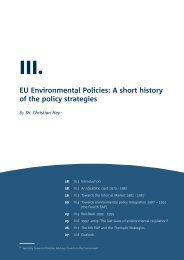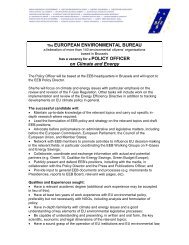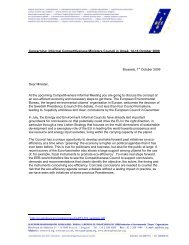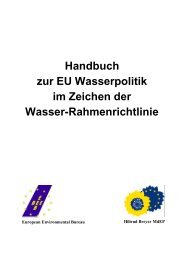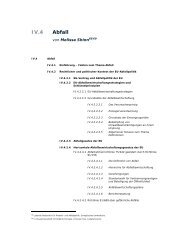EMAS III - European Environmental Citizens Organisation for ...
EMAS III - European Environmental Citizens Organisation for ...
EMAS III - European Environmental Citizens Organisation for ...
Create successful ePaper yourself
Turn your PDF publications into a flip-book with our unique Google optimized e-Paper software.
environmental achievements in terms of clear-cut comparable indicators and benchmarks,<br />
ANEC, ECOS and EEB do not consider the proposed measures to be appropriate.<br />
CRITIQUE BY THE EUROPEAN CONSUMER AND ENVIRONMENTAL ORGANISATIONS<br />
The umbrella federations of the <strong>European</strong> environmental and consumer organisations 11 have<br />
<strong>for</strong> many years questioned the value and usefulness of the <strong>EMAS</strong> systems. In particular, the<br />
organisations have called <strong>for</strong> a substantive re<strong>for</strong>m aimed at trans<strong>for</strong>ming <strong>EMAS</strong> into an<br />
environmental label <strong>for</strong> organisations – into a true “system of excellence” 12 . The central<br />
points of criticism on environmental management systems, including <strong>EMAS</strong> and ISO 14001,<br />
were:<br />
• The approach tends to shift decision-making on environmental per<strong>for</strong>mance issues<br />
from democratic institutions, involving public interest advocates, to companies.<br />
• The business interest is limited to environmental investments which pay off, whilst<br />
many protection measures are not profitable.<br />
• EMS systems do not require a minimum environmental per<strong>for</strong>mance and even legal<br />
compliance cannot be taken <strong>for</strong> granted.<br />
• EMS certifications do not allow <strong>for</strong> a differentiation between good and bad<br />
per<strong>for</strong>mers.<br />
• Tax reductions or reduced governmental controls linked to EMS compliance are<br />
questionable because of the fact that such compliance does not mean better<br />
environmental per<strong>for</strong>mance.<br />
• There is little convincing evidence on the table which would suggest that the<br />
implementation of an EMS standard has indeed boosted environmental per<strong>for</strong>mance.<br />
• Reporting requirements are either missing (ISO 14000), or inadequate (<strong>EMAS</strong>),<br />
lacking clearly defined key indicators of environmental per<strong>for</strong>mance and scales of<br />
comparison.<br />
The position paper contains a detailed discussion and justification of these points as well as<br />
suggestions <strong>for</strong> alternative approaches.<br />
11 ANEC, BEUC (the <strong>European</strong> Consumers <strong>Organisation</strong>), ECOS (<strong>European</strong> <strong>Environmental</strong> Citizen’s<br />
<strong>Organisation</strong> <strong>for</strong> Standardisation), and EEB (<strong>European</strong> <strong>Environmental</strong> Bureau)<br />
12 See joint ANEC, BEUC, ECOS, EEB paper “Making <strong>EMAS</strong> a system of excellence – Going beyond<br />
EMS” - http://www.anec.org/attachments/ANEC-ENV-2006-G-047.pdf<br />
4



